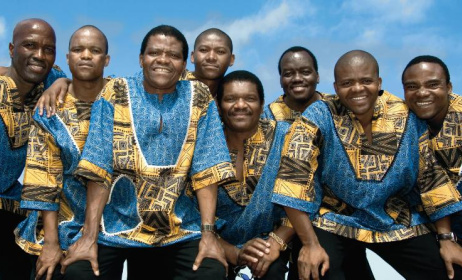Recording Academy commissions study on women’s representation in music
The Recording Academy in the US, in collaboration with Berklee College of Music and Arizona State University (ASU), has commissioned a study on women’s representation across the music industry.
 Recording Academy chief diversity, equity and inclusion officer Valeisha Butterfield Jones.
Recording Academy chief diversity, equity and inclusion officer Valeisha Butterfield Jones.
The new study will expand on the academy’s efforts and other research to amplify the voices of women in music.
“The study’s primary goals are to further establish a baseline analysis on women’s representation working in the American music industry, learn more about the available talent pool of women in music and set priorities around music creators and aspects of mentorship,” the academy said.
“The data collected from the study will be utilised to develop and empower the next generation of women music creators by generating actionable items and solutions to help inform the academy’s diversity, equity and inclusion objectives amongst its membership and the greater music industry.”
The news comes about a year after the Recording Academy suspended its first female CEO Deborah Dugan on misconduct allegations ahead of the Grammy Awards.
This is not the first initiative that has been conducted with Berklee and ASU to address women’s representation in music. In 2019, the Recording Academy launched Women in the Mix, which saw hundreds of music professionals and organisations pledge to consider at least two women in the selection process when a producer or engineer is hired. The academy also pledged to double the number of women voters by 2025. It has reached about 33% of that goal by adding 831 new women voting members to its membership.
As a first step to kick off the study, the academy has released a gender breakdown of this year’s Grammy Awards nominees for the first time in its 63-year history. Among the 853 nominees across all 84 Grammy categories, 198 identify as women, which represents 23%.
“Women are key drivers in the economy and across all business and creative sectors in music, globally, yet we reflect 2 percent of producers and engineers,” Recording Academy chief diversity, equity and inclusion officer Valeisha Butterfield Jones said. “It's our responsibility at the Academy to be the change that we seek and inspire progress within the industry.”
Berklee College of Music board of trustees chair Susan Whitehead said: “As the world’s leading institution for the study of music, Berklee is continually finding ways to foster and encourage diversity in the music community. The music industry needs a broad gender study that examines women representation beyond today’s popular music in order to help accurately identify key areas for growth and improvement. We look forward to working with the Recording Academy to develop strong methodology for this study and to authentically address the lack of women representation in the music industry."
Meanwhile, Music streaming service Deezer last week revealed that only 4% of its top 100 streamed electronic artists are women. The company released the data as part of its efforts to help shine a light on the many challenges that women face in the music industry. The streaming figures are based on the past 12 months and exclude mixed-gender bands across key genres worldwide.
Electronic had the least representation of female musicians, followed by rock and hip hop, which were both 7%. Pop boasts the highest representation by female artists at 42%, closely followed by R&B (39%) and soul (26%). Women representation in other genres included alternative (15%), country (15%), jazz (14%) and classical (11%).






















Commentaires
s'identifier or register to post comments